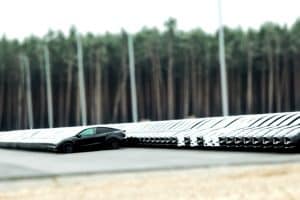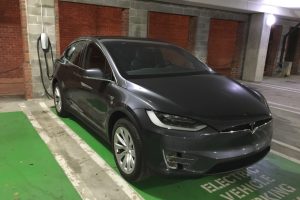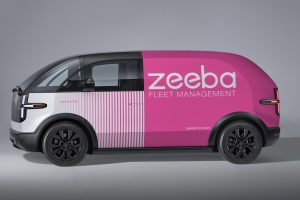During the Q2 2020 Earnings Call, Tesla CEO Elon Musk pledged a ‘giant contract’ to a nickel supplier. The problem is that the company will have trouble finding an efficient and environmentally friendly nickel mine, and this could prove to be the biggest challenge Tesla has ever faced.
Nickel is a crucial metal in batteries for electric vehicles as it can increase the energy density and give more range to cars. During the Earnings Call, Musk stated that nickel based cells are essential to the development of larger vehicles such as the Tesla Semi. “Where every unit of mass that you add in battery pack, you have to subtract in cargo,” he said. “So it’s very important to have a mass efficient and long-range pack.”
Cells based on nickel would give Tesla an advantage in the range of electric vehicles, a category where the company already leads by a considerable margin. With new vehicles on the way, the cells must be adjusted to work with specific workloads. The Semi is a prime example of that.
Nickel could replace cobalt in the current cells of Tesla’s batteries. Cobalt, a controversial element in its own right, is responsible for stabilizing the cell and has been effective in increasing the safety of Tesla’s high-energy batteries. However, the cobalt mining process is questionable, and mines that can obtain it are likely using highly illegal child labor. It also is not environmentally-friendly to mine.
Tesla has taken extra steps to ensure that through a series of due diligence checks its cobalt suppliers treat their workers in a humane way. Third-party firms complete random visits to these mines a few times a year to ensure human obtainment of the cobalt Tesla used in its batteries.
The issue is: Nickel mining isn’t that much different. While it would be advantageous, safer, and provide more range for Tesla’s vehicles, finding nickel that is environmentally friendly mines is challenging. Indonesia, where millions of tons of waste are dumped into the sea, polluting coral reefs and damaging tortoise homes, is the largest source of nickel.
Analysts believe that Indonesian miners will deliver nearly all of the nickel supply growth over the next decade. With electric cars becoming increasingly popular, batteries will be a large part of the demand for the metal increase. However, it is also used in everyday products, such as stainless steel appliances, says the Financial Times.
Other countries have nickel mines, such as Canada and Australia, but Indonesia is highly concentrated with it.
Steven Brown, a consultant and former employee at Vale, a nickel mining company, says it could be challenging for eco-conscious customers to want products that contain the metal after hearing how certain entities dispose of it.
“It could undermine the entire proposition of trying to sell a consumer a product that is environmentally friendly, if you have this back story,” he said.
Although other countries have nickel available, the increased demand for EVs will require large car manufacturers such as Tesla to eventually supply some of Indonesia’s metal. “At some point, it will happen where they can’t avoid Indonesian nickel,” Brown added.
Fortunately, Tesla requires its sources to go through due diligence processes, and it’s unlikely the company will be steering away to get nickel. Of course, Tesla will benefit from having more nickel, but even considering using it, it has to be sourced responsibly for the firm.
Nickel is the second most expensive metal in EV batteries. It trails only cobalt, which Tesla has been working intensively to get away from due to its environmental and humanitarian impact.
“We use very little cobalt in our system already, and that’s — that may to zero along, so it’s basically about nickel,” Musk said.
There’s a delicate balance between positive impact on the environment after EVs hit the road and the harmful impact some of the metals have. But the automakers do not assume any responsibility for the process of disposing of waste by the mining companies. But it is their responsibility to choose a company which decides to deal responsibly with the ridding of environmentally harmful materials.
Tesla made it a point to choose companies that share their sustainability mission, because the automaker realizes that the construction of an electric car starts with the materials being sourced. If the materials are not obtained responsibly, then the EV isn’t as Earth-friendly as it might be.
Pius Ginting, an environmental activist, perfectly summed it up: “The net result is we have clean air in our cities — but then we destroy a rich biodiversity area.”
Reported by Teslarati.
Want to buy a Tesla Model 3, Model Y, Model S, or Model X? Feel free to use my referral code to get some free Supercharging miles with your purchase: http://ts.la/guanyu3423
You can also get a $100 discount on Tesla Solar with that code. Let’s help accelerate the advent of a sustainable future.





